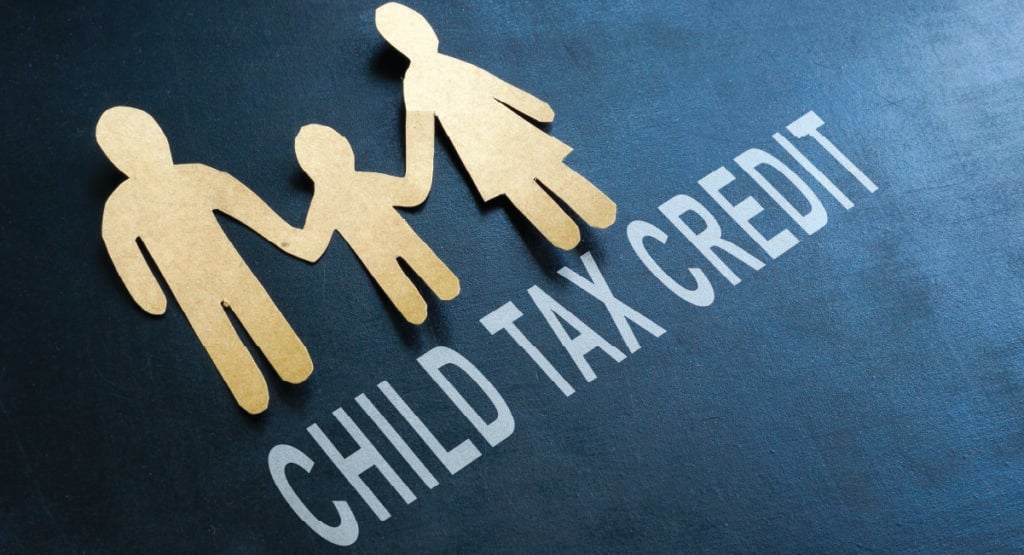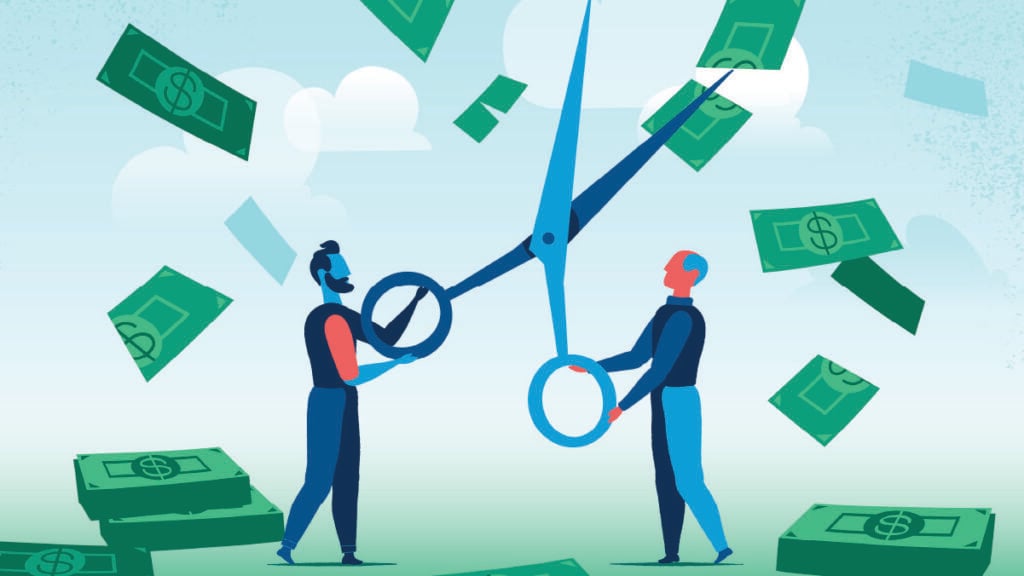
ITEP's Research Priorities
- 2025 tax debate
- Blog
- Cannabis Taxes
- Corporate Taxes
- Corporate Taxes
- Earned Income Tax Credit
- Education Tax Breaks
- Estate Tax
- Federal Policy
- Fines and Fees
- Georgia
- Immigration
- Income & Profits
- Income Taxes
- Inequality and the Economy
- ITEP Work in Action
- Local Income Taxes
- Local Policy
- Local Property Taxes
- Local Refundable Tax Credits
- Local Sales Taxes
- Maps
- Media Quotes
- News Releases
- OBBBA
- Other Revenues
- Personal Income Taxes
- Property & Wealth
- Property Taxes
- Property Taxes
- Publications
- Refundable Tax Credits
- Sales & Excise
- Sales, Gas and Excise Taxes
- Sales, Gas and Excise Taxes
- SALT Deduction
- Select Media Mentions
- Social Media
- Staff
- Staff Quotes
- State Corporate Taxes
- State Policy
- State Reports
- States
- Tax Analyses
- Tax Basics
- Tax Credits for Workers and Families
- Tax Credits for Workers and Families
- Tax Guide
- Tax Principles
- Tax Reform Options and Challenges
- Taxing Wealth and Income from Wealth
- Toolkits
- Trump Tax Policies
- Video
- Webinar
- Who Pays?
Idaho Center for Fiscal Policy: Idaho Families Would Benefit From Move to Include More Children in State’s Child Tax Credit
February 7, 2022
From housing to child care, hard-working Idaho families face high costs in our growing state. Since 2018, Idaho’s tax code has supported families through the state Child Tax Credit (CTC). In the American Rescue Plan Act (ARPA), Congress approved a temporary change to expand the definition of “child” to include 17-year-olds in tax year 2021. […]
Hawai’i Budget & Policy Center: Expanding Economic Opportunity with the Hawai’i EITC
February 7, 2022
Hawai’i’s working families continue to struggle with the nation’s highest gap between median earnings and the cost of living, and this difficult reality has only been made harsher by the COVID-19 pandemic. In fact, more than a third of Hawai’i households had at least some difficulty paying for their monthly expenses in December of 2021. […]
Arkansas Advocates for Children and Families: Tax Cut Plan Even More Expensive, Skewed Toward The Wealthy
February 7, 2022
The likely proposal for the long-discussed special session seems to have settled, and its main feature would be to cut the top personal and corporate income tax rates. This disproportionately benefits the wealthy, and the corporate income tax cut will largely be captured by out-of-state shareholders, meaning the revenue will leave the state economy entirely. […]
Wisconsin Budget Project: Tax Shift Would Hike Taxes for People with Low Incomes and Give a Big Tax Cut to the Top 1%
February 7, 2022
Last month, an influential group of lobbyists released a proposal to raise Wisconsin’s sales tax to 8%, making it the highest state sales tax in the country, and eliminate the state individual income tax, Wisconsin’s biggest source of revenue. The plan would result in the largest tax cuts going to white households, with households of color […]
The Commonwealth Institute: Youngkin Administration’s Proposals Would Sharply Reduce State Resources, Largely Exclude Working Families with the Lowest Incomes
February 7, 2022
The Youngkin administration’s tax plan would leave out nearly 80 percent of the over 800,000 taxpayers in Virginia who have incomes below $24,000. Gov. Youngkin’s proposed changes would also sharply reduce state General Fund revenues — the portion of the state budget over which lawmakers have the most discretion and which primarily goes toward funding […]
One Voice: Eliminating Individual Income Tax is Bad for Mississippi
February 7, 2022
House Bill 531 would eliminate the state individual income tax. Eliminating the income tax is bad for Mississippi, especially the state’s working families, communities of color, and retirees. While some lawmakers are suggesting that Mississippi’s revenue system is sound enough to support this tax cut, due to the current surplus, this couldn’t be further from […]
Alabama Arise: Eliminating State Grocery Tax Would Make Life Better for Alabama Families
February 7, 2022
Two bills in the 2022 regular session would end the state grocery tax while protecting school funding. The graph below shows how millions of Alabamians would benefit. Untaxing groceries quickly and responsibly would boost economic and food security for all Alabamians. That means replacing revenue for public schools in a way that doesn’t harm struggling […]
Open Sky Policy Institute: Most Nebraskans Left Behind by Income Tax Cut Bills
February 4, 2022
Non-Nebraskans, corporations and wealthy residents would be big winners under the latest income tax cuts proposed in in LB 938 and LB 939. Meanwhile, the bills – which would ratchet the state’s top corporate and personal income tax rates to 5.84% over four and three years respectively – offer most Nebraskans little tax savings while depleting revenue needed […]
Netflix Posts a Record $5.3 Billion in Profits and a Federal Tax Rate of Just 1.1 Percent
February 1, 2022 • By Matthew Gardner

Netflix's 2021 financial report shows it doubled its profits to $5.3 billion from the previous year and reported an effective federal corporate income tax rate of 1.1 percent.
Connecticut Voices for Children: Steps to a Fairer Tax System
February 1, 2022
Although Connecticut has the second highest level of per capita personal income in the US, making it exceptionally wealthy overall, many families consistently struggle because Connecticut also has the second highest level of income inequality and a substantial racial income gap, meaning a small, disproportionately white portion of the population primarily benefits from the state’s […]
Build Back Better’s Tax Provisions Would Help Advance Racial Equity
January 31, 2022 • By Brakeyshia Samms

Build Back Better can help ensure that all people are provided with the chance to lead healthy lives, have access to quality education, are treated fairly and justly, and thrive in today’s economy.
Mississippi Is the Latest in a String of States Pursuing Short-Sighted, Top-Heavy Tax Cuts
January 19, 2022 • By Kamolika Das

Not only is Mississippi's latest tax proposal deeply inequitable, the state simply cannot afford it.
The Compelling Data and Moral Case for Continuing the Child Tax Credit Expansion
January 14, 2022 • By Alex Welch, ITEP Staff, Jenice Robinson

In just six short months, the enhanced Child Tax Credit (CTC), enacted as part of the American Rescue Plan (ARP), decreased the number of children living in poverty by 40 percent. ITEP estimated that the lowest-income 20 percent of households with children would receive a 35 percent income boost from this policy alone in 2021. This is a meaningful, life-changing sum.
The Problem with Returning to a $2,000 Non-Refundable Child Tax Credit
January 13, 2022 • By Joe Hughes

Prior to last year, more than one in three children lived in households with incomes too low to receive the full $2,000 credit because it is not fully refundable. This means earnings requirements and other limits reduce the amount tax filers can receive as a refund. In fact, the maximum refundable portion is reduced to $1,400 (less than half of the maximum refundable credit available in 2021).
School’s In: Tackling College Affordability Through State Tax Codes
January 11, 2022 • By Brakeyshia Samms

Given that a sweeping federal solution to the college affordability crisis does not appear to be on the immediate horizon, it is even more important that states take whatever steps they can to expand college access and affordability. While most of that effort will need to occur on the spending side of the ledger—such as through lowering tuition costs, expanding financial aid, or perhaps even funding free college outright—tax policy also has a role to play.
The New Trend: Short-Sighted Tax Cuts for the Rich Will Not Grow State Economies
January 10, 2022 • By Neva Butkus

The same legislators who touted tax cuts for the rich as solution to our problems before the pandemic are also saying tax cuts for the rich are a solution during the pandemic. Tax cuts cannot be a solution to everything, especially at a time when the richest Americans are amassing more wealth than ever.

Rather than resorting to tax cuts, which can eventually create revenue shortfalls, lawmakers should determine whether they have adequately invested in people and communities. There are better ways to leverage tax systems to help those who need it most.
Why Treasury’s Pending Race-Based Analysis of Stimulus Payments is Important
December 21, 2021 • By Emma Sifre

One important data inadequacy is the lack of demographic information in tax data. While the IRS data offers rich data on taxpayer income, it does not collect information on important demographic characteristics like race and ethnicity. This presents a challenge for researchers interested in the racialized impacts of the U.S. tax system and has prompted many researchers and organizations to advocate for public-use tax data that is disaggregated by race and ethnicity.
ITEP Data on Child Tax Credit and Earned Income Tax Credit Provisions Before Congress
December 14, 2021 • By Steve Wamhoff

Congress expanded the Child Tax Credit (CTC) and Earned Income Tax Credit (EITC) for 2021 as part of the American Rescue Plan Act (ARP). The additional benefits that millions of families and workers received under that law will end this month if Congress does not act soon. The CTC expansion boosted the annual tax credit […]

President Biden’s American Families Plan (AFP) would use personal income tax increases on very well-off individuals to finance investments in people—in childcare, education, higher education, reducing child poverty, and other related measures. The following analyses provide more information about the revenue proposals in the AFP.

The EITC and CTC are proven poverty-fighting tools. The monthly CTC payments alone kept 3.6 million people out of poverty in October. This policy success is worth repeating.
The Commonwealth Institute: Tax Proposals Would Reduce Resources for Education, Transportation, and Other Priorities
December 8, 2021
The incoming Youngkin administration and state lawmakers have proposed several major tax proposals to reduce taxes for individuals and businesses. These include one-time tax rebates, dramatically increasing the state standard deduction, eliminating the state and local sales tax on groceries, and pausing the recent increase to the fuels tax. While some of these policy ideas […]
Alex Welch
December 8, 2021 • By ITEP Staff

Alex leads the organization's graphic design work and content creation for email, social media and website. Prior to joining ITEP, Alex served as the Digital & Media Manager for the Georgia Budget and Policy Institute.
CNN Business: This Tax Would Make Wealthy Corporations Pay Their Fair Share
November 24, 2021
Corporate America has perfected the art of dodging the taxes that everyone else pays. From 2018 to 2020, 39 of the largest companies in America paid zero dollars in federal income taxes, despite reporting a combined $122 billion in profits, according to analysis from the Institute on Taxation and Economic Policy. And 73 others paid […]
Forbes: How An $80,000 SALT Cap Stacks Up Against A Full Deduction For Those Making $400,000 Or Less
November 19, 2021
Congress seems to be considering two ways to address the Tax Cut and Job Act’s $10,000 cap on the state and local tax (SALT) deduction. The House version of President Biden’s Build Back Better (BBB) bill would raise the cap to $80,000. An alternative plan, first proposed by the Institute on Taxation and Economic Policy […]
